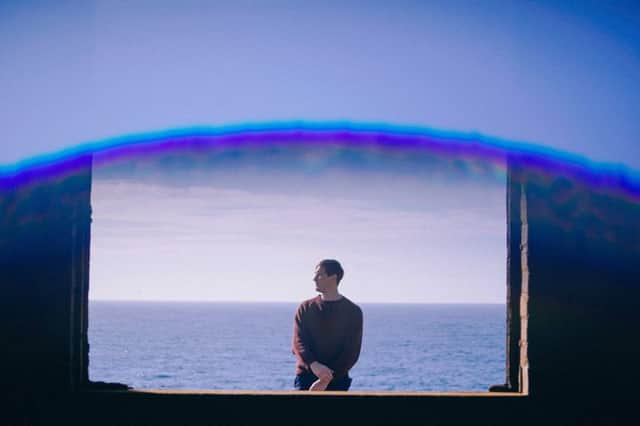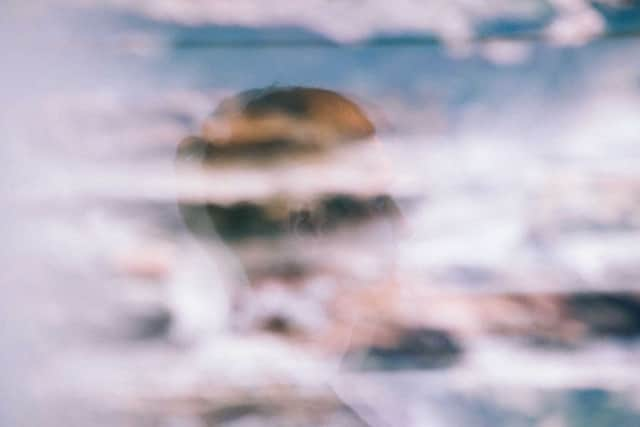Erland Cooper: ‘I like to bring myself back to a place, whether it’s real or imagined’


The record is the middle part of a trilogy dedicated Orkney, the rugged archipelago off the north coast of Scotland where he grew up.
The three albums were conceived with a narrative arc in mind, he says, “all centred around George Mackay Brown’s poems”. He likes the fact that he’s reached the mid-part “because it implies an end and I think that’s really important; it excites me knowing there’s a finishing line.
Advertisement
Hide AdAdvertisement
Hide Ad“I don’t know what I’ll do after that,” he adds. “You know when you’re hungry on an idea, we all get like that, and you can’t eat and sleep, you don’t know why but you’re bent on that task, to complete it.”


Solan Goose, the first album in the triptych, which came out last year, was actually intended to be a private concern.
“But then,” he says, “somebody heard it.”
“It was funny because I kept it to myself for about six months and I was just using it as a kind of tool to ease a busy mind as I travelled around the city, and it would bring me home with a jolt to hear an Orcadian accent – a bit like when you hear a Yorkshire accent, it takes you to a place. Orcadian does that for me. Once this record started to fly off out of my hands I needed to continue.”
Sule Skerry might just be about to hit record stores but Cooper reveals he is already working on a follow-up. “When you have something and no one else has it for a period, I don’t think it’s a selfish thing, but it’s complete when you give it to someone. There’s that limo between it going out there or being given to somebody to hear for the first time and it’s not a romantic view, I just rather like it, so when Solan Goose was due to be released I just thought, ‘Right, well I’ll crack on with part two’, perhaps marginally selfishly so that I could use to regain that feeling of having something.”
Advertisement
Hide AdAdvertisement
Hide AdHaving lived in London for several years, the 34-year-old admits to feeling a certain nostalgia for Orkney. “Nostalgia and romance go hand in hand, I think,” he says. “I must say growing up on an island, on a rock surrounded by sea, is both the best and worst thing about it. Yes, it’s idyllic but it’s also challenging, it’s difficult, and so every time I’ve gone up to Orkney to work on this project I’ve made sure it’s not at that peak summertime. I remember sitting in the pub with Alex Kozobolis, who I’d taken up to do the cinematography work and folk were coming up to me in the pub, because it was late September/October, going, ‘Why on earth are you here now, when half the pubs have closed down and tourists have all gone?’ But that’s when an island really shows you what it is, how it survives, the stories. The landscape is really shaped at that time of year, I think.
“I like to bring myself back to a place, whether it’s real or imagined. It’s a misconception that I dislike London, that’s not true, but I find it difficult. I could be walking along and see a reflection in a bright city building and maybe the colour of the sun has a similar tint to an Orkney sunrise and it bring me there. So I’m only ever trying to capture an essence of it, I’m not trying to want to be there all the time, I’m just trying to capture an essence of something form that time, and if it inspires folk to go up there then that tickles me.”
Cooper was raised with six siblings on Orkney. “Whilst we didn’t have a TV until my teens we did have a radio, and folk music was a massive part of my upbringing, but I think more by default than by desire,” he says. “My parents kind of forced me and my siblings to learn fiddle and trumpet. I think they had this view that we would all form this Waltons-type band just to entertain them in the evening. So we all played various traditional instruments but I wanted to play piano and guitar and never had the choice, if I’m honest, so I would sneak into the school and use the piano and the four-track and eight-track tape recorders and learn how to use all these instruments and the tools that were there.
“There was one record shop where you’d go in and get whatever was current, whether it was Nirvana or Half The World Away by Noel Gallagher. I’d take it back and figure it out on my own. All my mates were playing football and I didn’t find anyone to share that experience with at all, so I would just sit in the music room at school on my own figuring out how to record and write. I’m still trying to do that.”
Advertisement
Hide AdAdvertisement
Hide AdWhile Solan Goose was inspired by Orkney’s birdlife, Sule Skerry focuses on the North Sea. “The sea dominates in Orkney, you’re surrounded by it,” Cooper says. “It dominates in calm weather, it dominates in the storm and it dominates in its colour and it takes up the landscape, the horizon, everywhere you look. I miss it greatly and for me the sea is a bit like a comfort and I realise now, the older I get, that I’m drawn to escapism by the sea. The sea is the one true calming reset for me and I understand why completely, if you grow up with it, it makes perfect sense.
“But whilst the North Sea is the narrative of the record it’s also more to do with safe places, sea havens. Whether you step in and out when you’re in a city or not, whether there’s issues politically, whether there’s huge problems socially, we step in and out of our safe places. We all go to bed, we all get up, we all have a room, we all have a corridor or at least something that where we try to gain that; if you don’t have that it’s desperate. And I think that’s it for me – it’s about stepping in and out.
“The sea can change at any point and be life-threatening then it can be the most calming influence.”
The islands’ seafaring mythology has seeped into Cooper’s songs. “I think by default, by osmosis, you grow up with it – the trowies [earth mounds], the tales of the selkies [seals that transform into people on land], you can’t help but fall in love with these stories. The one thing that Orcadians do better than anything is tell stories to each other to get them through the winter. I was thinking about the tale of the selkie, this woman who turns up on the shore and the farmer takes her seal skin away and hides it, they get married and have children but then one day she finds her pelt and she puts it on and slips off to sea. It can touch on so many things from perhaps domestic abuse to just distance or somebody wanting to escape from their partner and going back hundreds of years, whilst now they would say ‘oh, they left or ran off with another fellow or another woman’ perhaps back then it was a way to accept that your partner has left you and to make up a story that she’s gone off to the sea, perhaps she just took a boat and b*****ed the hell away, I think about it on that level. You can read a story in so many ways, that’s where mythology comes from.”
Advertisement
Hide AdAdvertisement
Hide AdThe album’s guests includes folk singers Kris Drever and Kathryn Joseph, performing a poem written by Englishman Will Burn (“One sounds like a sermon and one sounds like prayer to me, that tickles me as well,” Cooper says), and Benge Edwards (“an incredible electronic musician” with whom Cooper “collaborated with without him knowing” when he found some “quite abstract recordings” of his “made on vintage electronic instruments” and parts of his own). He also tracked down the Japanese sound artist Hiroshi Ebina online (“I loved what he was doing with tape manipulation and modular synthesis”).
The third part of Cooper’s trilogy will be about “land and community”, but in the meantime he’s busy gearing up for Hinterlands, a rural film festival in Skipton, in which he will perform songs from Sule Skerry with a classical ensemble plus an improvisation to footage from the Yorkshire Film Archive. The idea, he says, came out of a conversation with Hinterlands’ artistic director Geoff Bird. “I love film, I love music – put the two together and there’s something powerful that happens,” he says. “But ultimately it’s all narrative and how that narrative fits together with the music, with the dialogue and with the picture. I think the conversation came out of our love for the film The Edge of the World that was one of the first location recordings shot up in Shetland, I think, but it’s supposed to be St Kilda and he said he was doing this festival and did I want to score a film live. I thought ‘Well, how about we do it slightly differently? We choose a venue which is slightly different – this art deco cinema, which makes perfect sense harks back to the days when you’d have a piano by the screen and back in the early days of cinema that’s how the music was played – and my musicians are so good, we have this language without words, why don’t you throw me under thus bus? We’ll have a quick chat and then live we’ll do a 10 or 15-minute experiment to the picture, which will have an evocative landscape, I’m sure, and then we’ll play part of the record to end’. It felt like a slightly more interesting way than just a show.
“I don’t know what I’ve set myself up for,” he laughs. “Ideas can fail, they know that it could fall flat on its face, but that’s OK. No one’s going to die, it’s just music.”
Erland Cooper plays at Plaza Cinema, Skipton on May 18. For full details of Hinterlands festival visit hinterlandsfestival.org.uk